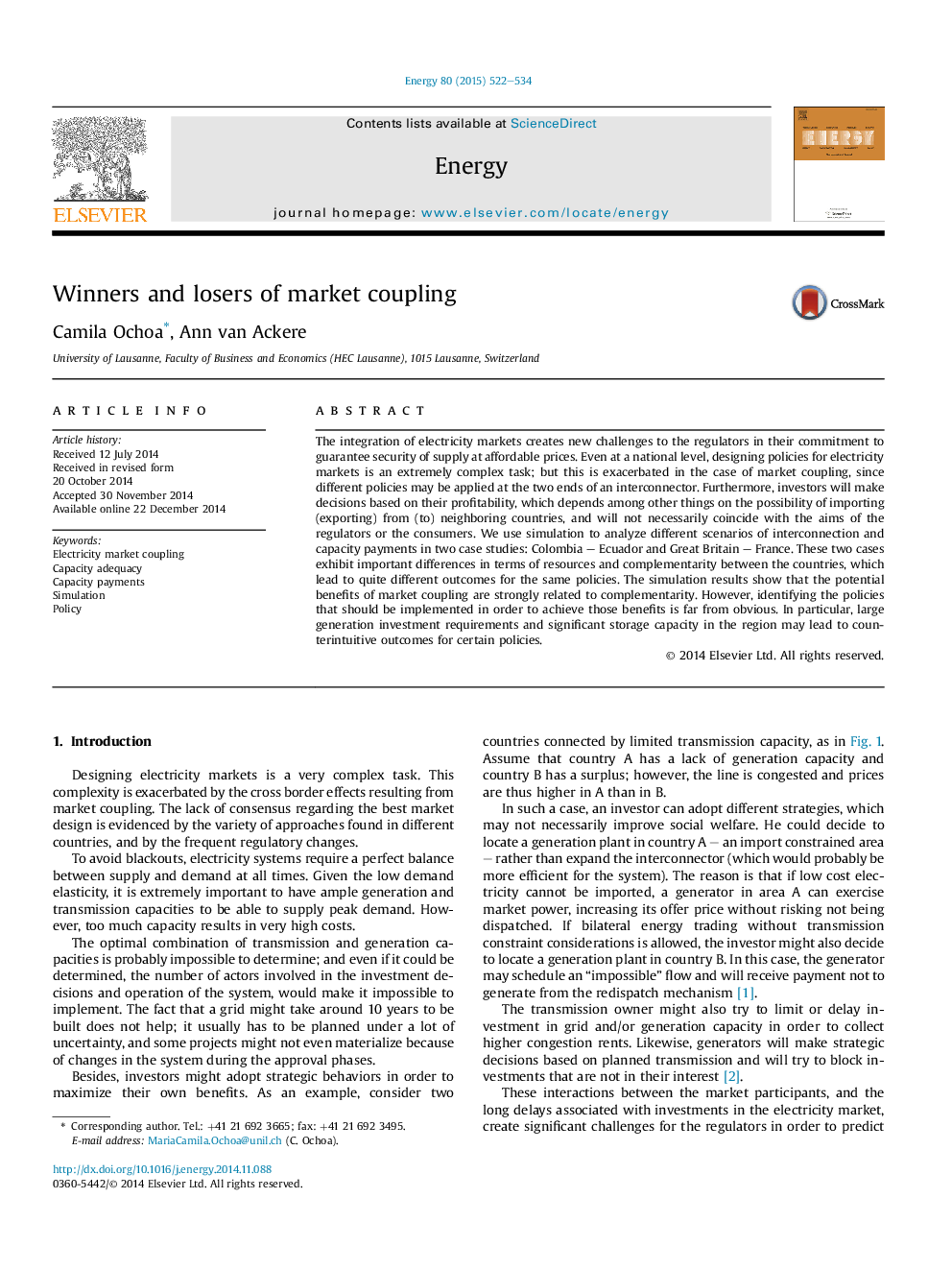| کد مقاله | کد نشریه | سال انتشار | مقاله انگلیسی | نسخه تمام متن |
|---|---|---|---|---|
| 1732028 | 1521466 | 2015 | 13 صفحه PDF | دانلود رایگان |
• We assess the long-term dynamics of electricity market coupling.
• The analysis is based on simulation results of two case studies.
• Potential benefits increase with complementarities between the countries.
• Investment requirements increase the sensitivity to policies.
• Storage capacity leads to counterintuitive outcomes, complicating policy making.
The integration of electricity markets creates new challenges to the regulators in their commitment to guarantee security of supply at affordable prices. Even at a national level, designing policies for electricity markets is an extremely complex task; but this is exacerbated in the case of market coupling, since different policies may be applied at the two ends of an interconnector. Furthermore, investors will make decisions based on their profitability, which depends among other things on the possibility of importing (exporting) from (to) neighboring countries, and will not necessarily coincide with the aims of the regulators or the consumers. We use simulation to analyze different scenarios of interconnection and capacity payments in two case studies: Colombia – Ecuador and Great Britain – France. These two cases exhibit important differences in terms of resources and complementarity between the countries, which lead to quite different outcomes for the same policies. The simulation results show that the potential benefits of market coupling are strongly related to complementarity. However, identifying the policies that should be implemented in order to achieve those benefits is far from obvious. In particular, large generation investment requirements and significant storage capacity in the region may lead to counterintuitive outcomes for certain policies.
Journal: Energy - Volume 80, 1 February 2015, Pages 522–534
